
Tagore's collection of blank verse poems known as 'Gitanjali' ('Song Offerings') we came across in an old Dutch edition from 1920. The Dutch is rather old-fashioned, and so we set out yesterday evening to write our own free translation into English. The poem draws no conclusion (and is the stronger for that), but listen to its sound: you can almost hear the rush of the waves onto the shore and the laughter of children. And the interweaving of innocence and experience, death and life, are played off against each other to the backdrop of Tagore's vivid and powerful setting. These things, Tagore seems to be saying, are not contrasts, but simply changing aspects of what is really a seamless whole.
***
On the shores of endless worlds the children gather. The infinite heavens are motionless above, and the restless waters are boisterous. On the shores of endless worlds the children gather, dancing, shouting, laughing with joy.
They build their houses of sand and play with empty shells. They weave their boats from dry leaves and laughingly launch them upon the unfathomable deeps. The children play their games on the shores of worlds.
They are unable to swim. They have not learnt how to cast nets. Pearl fishers dive for pearls, traders sail in their ships, while the children collect pebbles, only to discard them again. They do not search for buried treasure, they cannot cast fishing nets.
The sea rears up laughing, and pale glints the smile of the shore. Death-dealing waves sing songs without meaning to the children, as a mother who rocks the cradle of her infant. The sea plays with the children, and pale glints the smile of the shore.
On the shores of endless worlds the children gather. Storms course through the uncharted firmament, ships founder in the trackless watery wastes, death is abroad, and children play. On the seacoast of endless worlds is the great gathering of children.
From ‘Gitanjali’, by Rabindranath Tagore
Translated from the original Bengali into Dutch by Frederik van Eeden, and from Dutch into English by





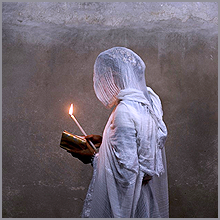

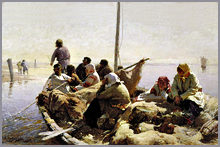

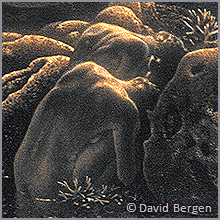







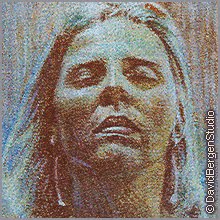











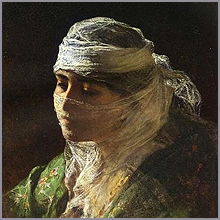
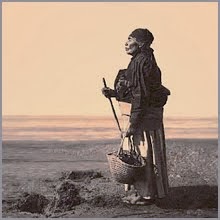








That is a beautiful image of light reflecting on water! I feel the richness of Rabindranath Tagore's writings in that his words express his deep love of life. Life is infinitely beautiful and his poems and story express this so well. Even in the midst of the most horrible events life is intrinsically beautiful. The children embrace life in the moment and simply play with joy and exhilaration even though danger and death are close by. They do not worry or fill themselves with anxiety as so many adults do. I find this inner joy and innocence of children so touching and beautiful. They are not concerned about fears or about what may happen in the future. They live fully in the moment. The gateway to eternity is found in the present moment and never in the future. In the New Testament Jesus states, "Truly I tell you, unless you change and become like little children, you will never enter the kingdom of heaven." I feel Jesus telling us to strip away the layers of mental conditioning so that the core of our being is revealed and we discover our true inner nature that is filled with joy.
ReplyDeleteA beautiful insight, Joseph - also that you appropriately supplement your insight with the words of Jesus. The heart of a child is indeed already open to this sacred landscape, and accepts all in trust, without the need to question or doubt. For a child the sacred is both trusted and of itself. Oh, how we sometimes must struggle as adults to regain that place! And yet the child - and the child in us - shows us how easy it is.
ReplyDelete